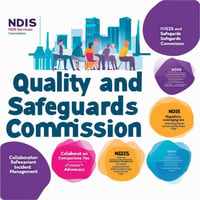As Australia's population ages, the demand for aged care services continues to grow. At the same...
NDIS Service Agreements: A Practical Guide for Providers and Participants
Service agreements sit at the heart of high-quality, person-centred supports. They spell out exactly what will be delivered, how, when, and at what cost, protecting both parties and satisfying regulatory expectations. Below we unpack the latest guidance direct from the National Disability Insurance Agency (NDIA) and explain how it translates into day-to-day practice for NDIS and My Aged Care providers.
1. Are Written Service Agreements Always Required?
| Support Type | Written Agreement Required? | Key Reference |
|---|---|---|
| Specialist Disability Accommodation (SDA) | Yes – mandatory under the NDIS Rules. | ndis.gov.aundis.gov.au |
| All other funded supports | Strongly recommended but not compulsory. NDIA may still review agreements during compliance checks. | ndis.gov.au |
Even when not strictly required, written agreements remain best practice. They prove that pricing aligns with the current NDIS Pricing Arrangements and Price Limits, document each party’s responsibilities, and provide an auditable trail if issues arise.
2. Core Elements NDIA Expects to See
The NDIA’s “Things to think about when making a service agreement” factsheet highlights the essentials. At a minimum your agreement should cover: ndis.gov.au
-
Parties to the Agreement – full legal names, contact details and ABN (for providers).
-
Supports & Outcomes – clearly describe every support, frequency, duration, location and what success looks like.
-
Pricing & Budget Source – list item codes and price limits so billing aligns to the participant’s plan.
-
Plan Review & Agreement Review Dates – usually timed to the participant’s plan review.
-
Rights & Responsibilities – privacy, safety, choice and control, respectful communication.
-
Cancellations & No-Shows – notice periods and fees, consistent with current NDIA rules.
-
Incident & Complaint Pathways – how disputes are raised and resolved, including escalation to the NDIS Quality & Safeguards Commission.
-
Signatures – participant (or nominee/guardian) and authorised provider representative.
3. Choice, Control and Consent
Participants have the right to:
-
choose their providers, change providers and end agreements subject to notice clauses;
-
decide how much personal information they share;
-
receive agreements in a format and language they understand. ndis.gov.aundis.gov.au
Providers must:
-
support informed decision-making, not simply send a template for signature;
-
review and amend agreements whenever the participant’s needs or NDIS plan change;
-
respect cultural, communication and accessibility requirements.
4. Provider Compliance Obligations (May 2025 Update)
A new NDIA factsheet (published six days ago) summarises six key obligations: ndis.gov.au
-
Accurate Claims – charge only for supports delivered, at the correct price.
-
Plan Alignment – deliver services strictly within the participant’s funded categories.
-
Conflict-of-Interest Management – declare, document and mitigate conflicts.
-
Fair & Ethical Conduct – no misleading or unconscionable behaviour.
-
No Improper Advantage – avoid any actions that pressure or exploit participants.
-
Record-keeping – retain evidence of services, agreements and billing for NDIA audits.
5. Changing or Ending an Agreement
Either party can request changes at any time. Once terms are renegotiated the agreement – and the service booking in the myplace portal – should be updated to reflect the new arrangements. If a participant wishes to exit, providers must honour the notice period and promptly cease claiming after the termination date. ndis.gov.au
6. How Does This Differ from My Aged Care Agreements?
| Feature | NDIS (non-SDA) | My Aged Care (Home Care Packages) |
|---|---|---|
| Legal status | Recommended, reviewable by NDIA | Mandatory under the Aged Care Act |
| Funding source | Individual NDIS plan budget | Govt subsidies + consumer co-contribution |
| Fee schedule | NDIS Pricing Arrangements | Home Care Package fees & supplements |
| Review cycle | Typically aligned to plan review (12–24 mths) | Annual or when care needs change |
| Regulator focus | NDIA + NDIS Commission | Aged Care Quality & Safety Commission |
The structural principles are similar, but pricing, subsidy rules and compliance monitoring differ. Providers operating in both systems should maintain separate, system-specific templates to ensure full alignment.
7. Practical Tips for Providers
-
Use plain English headings and break content into digestible sections.
-
Offer the agreement in alternative formats (Easy Read, large print, electronic).
-
Reference the latest price guide version and include a hyperlink for transparency.
-
Add a review reminder to your practice management system so agreements are refreshed ahead of plan renewals.
-
Store signed copies securely for at least seven years (audit requirement).
Final Word
A robust service agreement is more than paperwork – it is the roadmap for delivering safe, high-quality, and participant-centred supports. By incorporating the NDIA’s latest guidance and keeping clauses crystal clear, providers can build trust, safeguard revenue, and deliver the consistent experience participants deserve.
Need help drafting or reviewing your service agreements?
Email info@hmsaustralia.com.au or visit www.hmsaustralia.com.au to book a consultation.
This article is current as of 4 June 2025. Always check the NDIA website for the latest updates before issuing a new agreement.
-1.png?width=200&height=150&name=Untitled%20design%20(4)-1.png)


